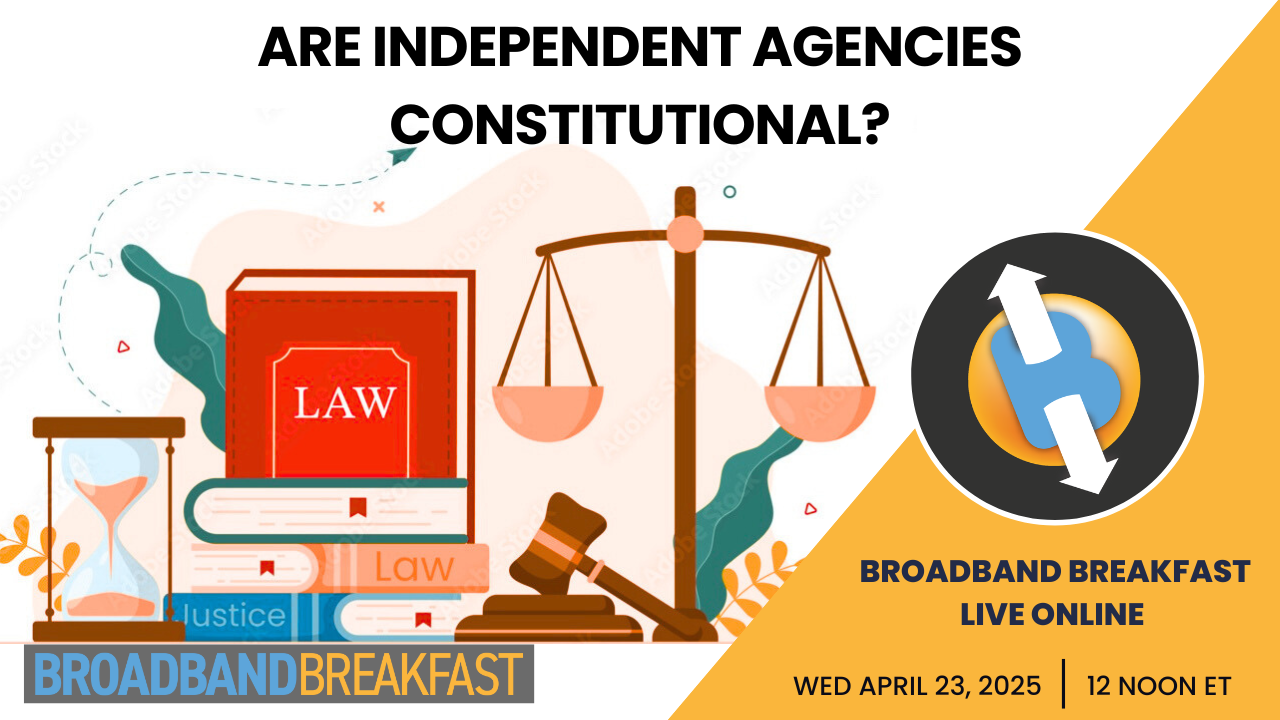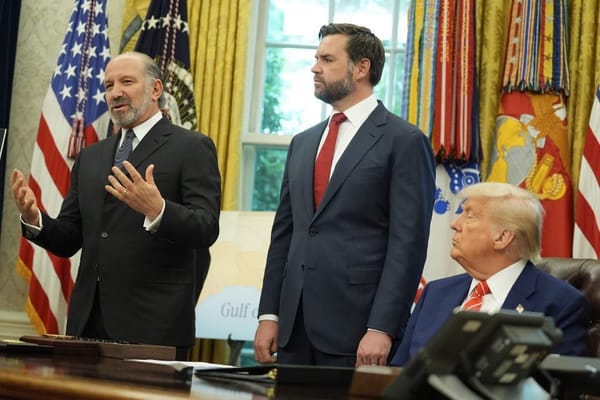Legal Experts Warn of Looming Supreme Court Reckoning
The panel took place following President Trump’s efforts to remove sitting Democratic commissioners from the FTC.
Broadband Breakfast
WASHINGTON, April 23, 2025 — While there some degree of consensus among expert panelists that the Supreme Court is likely to uphold President Donald Trump’s power to fire sitting Democratic commissioners from the Federal Trade Commission, legal scholars on Wednesday warned that there were compelling reasons why it shouldn’t.
Corbin Barthold, director of appellate litigation at TechFreedom, predicted that the Court would strike down Humphrey's Executor, the 1935 decision that upheld limits on presidential removals from independent agencies. He pointed to recent rulings such as Seila Law (2020) and Free Enterprise Fund (2009), both of which questioned limits on presidential power and the legal footing of independent agencies.
However, with political institutions and the electorate showing less willingness to constrain executive power, panelists said, the Court now may need to play a critical role in maintaining Constitutional stability.
 Broadband BreakfastHarold Furchtgott-Roth
Broadband BreakfastHarold Furchtgott-Roth
“We’re seeing in real time the risks of too much presidential direct control over what these independent agencies can do,” said Peter Shane, a constitutional law professor at NYU, warning that dismantling independent agencies could destabilize far more than just administrative law.
Still, some panelists underscored longstanding concerns about how power is exercised within independent agencies. Former Federal Communications Commissioner Harold Furchtgott-Roth criticized the consolidation of legislative, executive and judicial powers within these agencies.
"What happens in an agency that combines the different powers of government is you become a little sloppy in rulemaking because you know you'll make it up on enforcement, and you become a little sloppy on enforcement because you know you'll make it up in adjudication," said Furchtgott-Roth, now a senior fellow at the Hudson Institute.
Trump’s firings mirror the circumstances that gave rise to Humphrey’s Executor, in which the Supreme Court held that Congress could protect Federal Trade Commissioners from at-will removal because of the agency's quasi-legislative and quasi-judicial duties.
However, Howard Beales, former director of the FTC’s Bureau of Consumer Protection, emphasized that today's FTC bears little resemblance to its 1935 version. The FTC was once envisioned as a “common-law agency” that relied on administrative proceedings and lacked authority to impose penalties for violations.
"For the last 40 years, the FTC has increasingly shifted to look exactly like the Department of Justice, bringing most of its cases as a prosecutor in federal district court," Beales argued." It looks a lot more now like most of the executive branch, he said.
The panel also addressed the Federal Reserve’s unique structure - a quasi-public, quasi-private entity central to the country's monetary policy. The fact that the independence of the Federal Reserve seems to be imperative to the safety of the U.S. economy may, panelists suggested, be one reason why the Supreme Court declines to overrule Humphrey's Executor.
In other words, the difficulty of distinguishing the Federal Reserve from other multi-member independent agencies might cause the high court from doing something – overturning Humphrey's Executor – that might under other circumstances make sense. Dismantling independent agencies would weaken the guardrails protecting federal administration from political pressure.
"It is not so important from a Constitutional point of view which agencies are structured to be independent," Shane said. "What is important Constitutionally is that it be understood to be Congress's decision whether or not to have an independent agency, not the president's decision."
Watch Full Video:
 Broadband BreakfastHarold Furchtgott-Roth
Broadband BreakfastHarold Furchtgott-Roth









